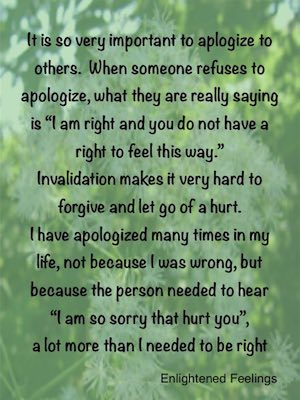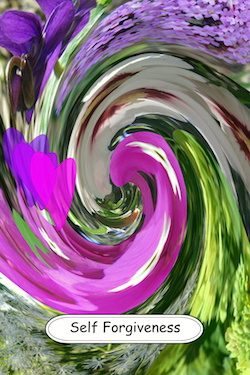Let's face it ... we’ve all got secrets …. Whether we have thoughts and embarrassing experiences we want to keep to ourselves, or we are confidants to the secrets of others
Why do we keep secrets? Fear. We fear judgment which results in humiliation, punishment, or being ostracized. Shame is very painful and very traumatic. We do whatever we can to avoid it. And so we keep secrets
GUILT = I DID something bad (self-judgment)
SHAME = I AM bad/unworthy (self-punishment)
HUMILIATION = Others think I am bad (feeling judged by others)
DISGUST = Someone else is bad (shaming others)
Shame needs 3 things to exist … secrets ~ silence ~ judgment
You don’t even have to feel shame to be traumatized by it. Fear of being humiliated is traumatic enough
Using shame, criticism, guilt, or humiliation to parent causes children to perceive they are not worthy. Children begin to believe love must be earned, that they are not lovable unless they are perfect, or that they are different and don’t fit in. Shamed children turn into social outcasts
It is your negative childhood experiences that prompt you to become a ‘people-pleaser’. Wearing a mask of ‘niceness’, acting to please others, and not being your true self are symptoms of living with shame. You learned quickly that being a ‘good girl’ causes less friction, blame, upset or punishment
But, false ‘nice’ behaviours seriously undermine confidence and self esteem, escalating into even more guilt, insecurity, shame, and isolation from others, and a need to control how others perceive you. You begin to lose your real self. You must constantly live with the stress of role-playing and being found out as a fraud
How we deal with shame:
. move away (secrecy, withdrawal, silence, hide, suicide)
. move toward (seek to appease and please)
. move against (aggression, try to gain control over others) or shaming others (use shame to divert shame)
. control and perfectionism (role-play to maintain an image and stay safe. “If I look perfect and act perfect I can avoid the pain of judgment, blame and shame”)
Inner conflict and feeling unworthy and unable to be yourself are barriers to being close with others. You may create rifts and conflict as a way to avoid vulnerability and intimacy. Or, you may try to manipulate how others perceive you to hide what you don’t want them to see (narcissism). The underlying goal is to gain approval, love or loyalty from others so that you can feel validated and love yourself
But, without a commitment to honesty with yourself and with others you become untrustworthy. You can never really be comfortable or at home in your own body. You won't be able to nurture yourself in healthy ways
Meaningful, enduring relationships will constantly elude you. You will never get your needs met and will always feel sadness and longing. You may then compensate with over-eating, drugs or alcohol
Inevitably these behaviours only lead to even greater insecurity, diminished self esteem, and a greater need to control the perceptions of others. It should be no surprise that narcissism is born of guilt and shame
Sometimes guilt and shame grows into self-judgment, self-degradation, unworthiness and self-punishment. The result is a life of limitation, struggle, and starvation of abundance, emotional satisfaction, and happiness
Health issues such as neurological disorders, liver disease, kidney disorders, stiffness or pain in the neck and shoulders, ‘accidental’ injuries, and cancer all reveal that something is eating away at you emotionally
The older you are, the more likely you are to hold secrets or shame. But, you don’t have to be a wrong-doer to experience shame or feel its effects. You feel guilt and shame equally when you keep someone else’s secrets, or hide and protect their transgressions or lies

This is how innocent victims of sexual abuse, spousal abuse, and bullying come to feel shame and guilt
When someone refuses to apologize for their wrongdoing, they are openly showing that they feel no sense of remorse, shame, responsibility, or guilt
Invalidation and denial makes it very hard for a victim to forgive and let go of a hurt. The victim then takes on the shame, guilt, and responsibility, by subconsciously feeling that they must somehow be the one at fault
Guilt or shame, whether your own or the secrets you carry for others, creates judgment which then causes inner conflict and unworthiness that prevents you from getting too close to others. You avoid vulnerability and intimacy. Or you create a false persona to ensure everyone loves you and can’t see the darkness you are hiding
In this way, victims are actually victimized three times
Freedom is the reward when you become heart-honest enough to fully own your mistakes, transgressions, and victimizations so that you can finally let them go and no longer have to keep secrets or feel guilt
You don’t have to share openly, if it might hurt others. Write down how you feel, and then burn it. The act is cathartic
But, if you carry shame or guilt that should rightfully belong to others, sometimes those people need to be called on their actions
You don't have to feel guilty if forgiveness does not arise. Forgiving may prematurely censor your own rightful anger, confusion, and sense of loss or betrayal, and does not allow for a process of building healthy boundaries and self-trust
Too many people struggle with forgiving and then feel guilty for not being able to do so. When the betrayal is great or consistent, or holds certain dynamics, there is a fear of letting down your guard and allowing it to happen again. And that denies forgiveness and trust
Here are 4 solutions to help you resolve your painful past ...
Choose one that works for you. Or try them all
1) Don't wait for an apology that will never come. Your abuser is living with their own unresolved inner conflict. Instead, write your own eloquent apology from your abuser--the one you want and need to receive. Imagine that apology actually coming from your abuser
2) Write a letter to your abuser. Write down everything you feel. Pour your heart out. Every little detail. The act of writing helps balance your left and right brain hemispheres and effectively dissipates the energy of your emotions. You suddenly feel heard, validated, vindicated. You gain clarity and resolve. Healing and release takes place. You don't even have to send your letter. You may even feel more free if you shred or burn it
3) Resolve is sometimes the only choice. You cut the chord with your dysfunctional relationship. It allows you to accept that the person is just who they are, while you adopt the strength to refuse their influence in your own life. It’s a process of self-honouring and reaching a deeper understanding of what you endured that can allow for greater acceptance and inner peace
4) We have essence fusions that can help you quickly & effortlessly achieve resolve and healing ...
Divorce Heal ~ Deep Wounds of Childhood ~ I Am Not a Victim ~ Sexual Abuse Release ~ Serenity
I am always grateful for the gift of Enlightened Feelings living flower frequencies. 30 drops a day in a glass of water makes the release of one's harmful, hurtful past so effortless and natural
Healing your past using flower frequencies fusions is a 3-step process
1) Use an essence fusion to remove control issues to stop mental resistance when beginning any protocol for releasing long-held or childhood shame
Control Release or I Am Flexible
2) Use an essence fusion to remove negative feelings and overwrite your past experiences
3) Use an essence fusion to instil positive feelings and empowerment
Helpful flower frequencies fusions for dissolving guilt, judgment and shame:
I Am Not a Victim, Guilt Release, Forgiveness, Self Forgiveness, Forgive My Past, Self Acceptance, My Authentic Self, Soul Retrieval, I Am Deserving
Helpful flower frequencies fusions for increasing your self esteem and personal power:
I Am Not a Victim ~ Self Esteem ~ Empowerment ~ Love Yourself ~ My Authentic Self ~ Respect Me! ~ Social Empowerment
#overcomeshame #guiltrelease #youaredeserving





